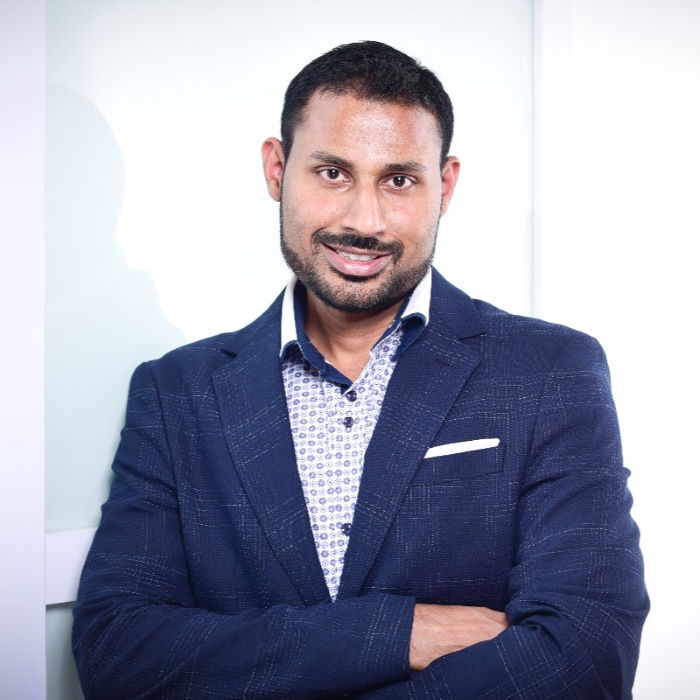Dr. Ashish Rajput
Ashish Rajput, Ph.D. is Chief Science Officer and Partner at Maximon, a longevity company in Switzerland where he empowers entrepreneurs to build science-based scalable companies providing healthy aging and rejuvenation solutions. His personal mission is to catalyze life science innovations to enhance human longevity and healthspan.
Ashish has been with Maximon since 2021, and they identify the most promising business opportunities in the field of longevity and build companies from scratch and with a team of globally successful entrepreneurs and venture investors, they have built a venture building process that bridges the gap between science and business. They provide proven structures, financing, and a unique environment for entrepreneurs to build a longevity venture.
Previously, Ashish was Investor and Scientific Advisor at Longevitytech.fund, between 2020 and 2021. They invest in pre-seed and seed-stage companies extending lifespan.
Ashish is inspired to cure aging and age-related diseases such as cancer, Alzheimer’s, and other neurodegenerative diseases. He is currently investigating the links between aging and cancer at the cellular and molecular level.
Ashish earned his Ph.D. in Molecular Medicine in 2018 from The University of Göttingen with the thesis DNA methylation changes in plasticity genes accompany the formation and maintenance of memory. He earned his Master’s Degree of Science in Medical Biotechnology in 2010 from the Pravara Institute of Medical Sciences in Maharashtra with the thesis Biofilm characterization and quorum quenching studies in pathogenic strains of S. aureus and P. aeruginosa. Ashish earned his Bachelor’s Degree of Science in Bioinformatics, Biotechnology, and Computer Sciences in 2008 at the Christian Eminent College in Indore.
After his Master’s Degree in 2010, Ashish pursued his training at Eminent Biosciences as Bioinformatics Research Trainee for a year and continued as Bioinformatics Project Guide at DNA Education & Research in Indore in 2011. During this time, he was also a volunteer at SENSFAI at the SENS Foundation.
Between 2011 and 2013, Ashish was Research Associate in Biotechnology at the Indian Institute of Science (IISc) where he worked in Prof. Dr. Subba Rao’s lab on microarray gene expression data analysis to find a crosstalk in MiT/TFE family transcription factors in regulating the lysosome and melanosome biogenesis.
He did his Virtual Internship in the group of Prof. João Pedro de Magalhães’ Integrative Genomics of Ageing Group as Predoctoral Internship at the University of Liverpool.
Read Systematic analysis of the gerontome reveals links between aging and age-related diseases.
In 2013, Ashish began his four year doctoral research at the German Center for Neurodegenerative Diseases (DZNE) at The University of Göttingen. He was busy investigating aging and neurodegenerative diseases. He worked on DNA methylation and transcriptomics studies on a collaboration project to develop the Tagger mouse system: a tool to dissect brain function and pathophysiology in in-vivo conditions.
In 2015, he did his research training on single cell sequencing method at the Harvard Medical School and established single cell sequencing technique (Drop-seq) in the lab and characterized subpopulations of motor neurons and hippocampal neurons using this method in mouse models.
Ashish also did some epigenetics studies to understand learning and memory molecular mechanisms (published in Nature Neuroscience) and did a small RNA sequencing study on >250 human patients and healthy individuals to investigate early-stage biomarkers for Parkinson’s disease (DENOPA). He continued his Research on Ph.D. projects at the University Hospital Hamburg-Eppendorf until 2018.
After he earned his Ph.D., Ashish did his Postdoctoral Research at the Technical University Munich where he worked on links between cancer and aging by successfully investigating genomics and drug targets for a highly aggressive mixed adeno-neuroendocrine cancer using mouse models, cell culture, CRISPR-CAS9, next-gen sequencing, single-cell RNA sequencing (10X genomics), and bioinformatics approaches. He also generated pancreatic cancer 3D organoid models using human-induced pluripotent stem cells for drug development.
Ashish has written for several peer-reviewed high impact factor publications such as Nature Neuroscience and PLOS Biology. Read DNA methylation changes in plasticity genes accompany the formation and maintenance of memory, Sodium butyrate rescues dopaminergic cells from alpha-synuclein-induced transcriptional deregulation and DNA damage, and Systematic analysis of the gerontome reveals links between aging and age-related diseases.
Visit his LinkedIn profile. Follow him on ResearchGate, Google Scholar, and X.
